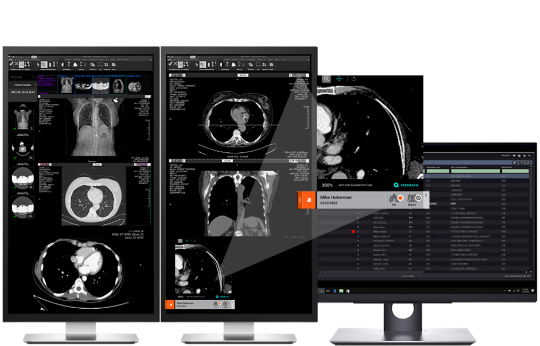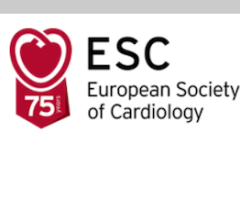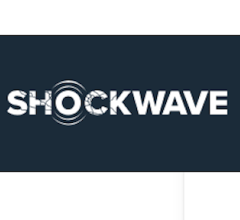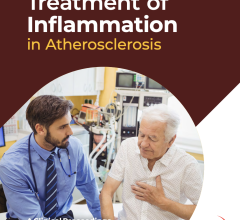
During the National PERT Consortium’s 9th Annual Pulmonary Embolism Symposium, groundbreaking research in the advancement of AI-driven pulmonary embolism (PE) care was unveiled, showing research from three leading institutions utilizing Aidoc's PE AI solution. Image courtesy: Aidoc
September 27, 2023 — The National PERT Consortium held its 9th Annual Pulmonary Embolism Symposium: “What is Known and What We Need to Know — State of the Art and Scientific Update,” Sept. 21-23 in Austin, TX. The event fosters collaboration and innovation in the field of pulmonary embolism research and care, and planners have announced the 10th Annual Symposium will be held Sept. 11-14, 2024 in Boston, MA.
During the event, groundbreaking research in the advancement of AI-driven pulmonary embolism (PE) care was unveiled, showing research from three leading institutions utilizing the Aidoc PE AI solution. The results, reported by Aidoc in a statement issued after the event, demonstrated immense clinical value in reducing mean hospital length of stay, improving patient access, and correctly alerting care teams of suspected PEs with potential for advanced interventions.
The three studies highlighted the care advantages of utilizing Aidoc in the management of acute pulmonary embolisms, including numerous patient outcome benefits, according to the summary issued by Aidoc, which reported the following key findings from the studies presented:
- 37% hospital length of stay reduction with AI triggered PERT activation and initiation of advanced therapies
- 68% increased access of catheter-directed interventional therapy for intermediate-high to high acuity PE patients
- A highly sensitive (95%) early alerting system that successfully identified critical PE patients
"Proving the robustness of any AI solution hinges on the application of scientific rigor and the scrutiny of peer review,” said Jerome Avondo, VP of Clinical Affairs and Reimbursement, Aidoc. Collaborating with these esteemed institutions to evaluate Aidoc's PE AI Solutions is critical to increasing awareness of the multi-faceted benefits AI can provide to patients, providers and health systems," he added, further noting, "A difficult to manage, high acuity patient population, such as PE, presents novel opportunities for assessing the impact of artificial intelligence and understanding the overall impact on outcomes."
These studies illustrate the ongoing evolution of Aidoc's AI-powered PE solution from an algorithm to enterprise-wide platform used by Pulmonary Embolism Response Teams (PERTs) across entire health systems, noted the summary, noting that the platform’s ‘always on AI’ runs in the background examining both dedicated CT exams and non-dedicated CT exams for both expected and unexpected PE, and brings suspected findings forward to care teams faster.
In its update from the PERT Symposium, the company reported on research from multiple institutions which adopted the platform as follows:
University of Texas Medical Branch Reduces Length of Stay: The University of Texas Medical Branch (UTMB), based in Galveston, TX, a large academic health system, presented research showing how Aidoc's proprietary AI platform, the aiOS, helped operationalize PE workflows and communications. According to the company’s summary statement, UTMB assessed the clinical and patient outcomes following implementation of Aidoc's AI-powered PERT solution over a one-year period.
Each AI finding had a chart review either retrospectively for PERT consultation eligibility (pre-AI) or prospectively to determine if a PERT consultation had occurred (post-AI). The mean ICU length of stay decreased by 33.5% (pre-AI:2.30 days, post-AI:1.53 days), while the mean hospital length of stay decreased by 36.7% (pre-AI: 6.70 days, post-AI: 4.24 days). These findings highlight the ability to enhance patient management and outcomes in the PE patient population.
Jamaica Hospital Medical Center Increases PE Interventions: The company also reported that even in settings where a PERT is available, a substantial percentage of pulmonary embolism patients in the traditional workflow are treated without the involvement of the PERT. Medical researchers at Queens, NY-based Jamaica Hospital Medical Center examined the change in the volume of PE patients referred by the PERT for catheter-directed therapies, following the implementation of Aidoc in the PERT workflow. After introduction, the annual volume of patients referred for interventional therapies rose by 68% compared to the period before the implementation of Aidoc PE AI.
University of Chicago Medicine Utilizes Aidoc AI to Prioritize and Triage PE Cases: The University of Chicago Department of Medicine published the final abstract involving Aidoc's PE AI, assessing the retrospective predictive power of the AI to identify patients that will require escalated care. As noted in the company statement from the recent PERT Symposium, its Aidoc PE AI achieved a sensitivity of 95% in identifying patients that ultimately required advanced therapy in the pre-AI standard of care PERT.
More information: www.Aidoc.com


 February 04, 2026
February 04, 2026 









